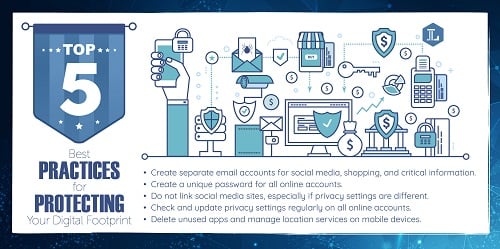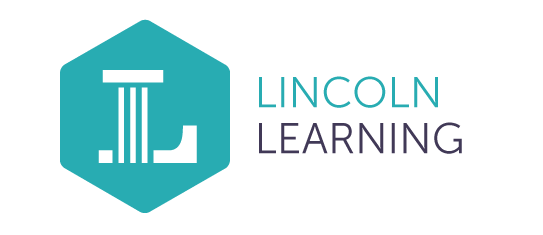4 min read
4 Tips to Protect Your Online Privacy
By: Nicole Thompson and Todd Halfast on Jan 25, 2024 5:43:27 PM

Smart devices have given us instant access to the web, no matter where we are or what we’re doing. They’ve changed the way we do business, how we entertain ourselves, and the manner in which we socialize.
Consequently, today's online activities have opened a plethora of doors for hackers to target your credit, personal information, and identity. Today, we’re going behind the scenes of web security and giving you tips to protect your privacy.
Crawling
Search engines are constantly “crawling,” or scanning, the web and collecting results in data warehouses. Crawlers are indiscriminate and scan not only traditional websites, but also blogs and social media feeds. Everything on the web can be crawled.
Once information has been crawled, it is permanent in the data warehouse. Even if an original article, post, or picture has been deleted, the stored search engine version of the original likely exists in the data warehouse.
To see what kind of information is available about you online, search your name in Google. Whatever information has been crawled may show up in the search. This information cannot be removed from the web. Therefore, being cautious about what you post about yourself on any online outlet helps manage the information others can easily find about you.

To help protect and manage the information that can be obtained from your social media feeds, consider taking the following steps to help maintain your privacy:
![]() Set all social media accounts to private.
Set all social media accounts to private.
![]() Either deny completely or, at the very least, require approval before anyone can tag you in a post or picture.
Either deny completely or, at the very least, require approval before anyone can tag you in a post or picture.
![]() Make sure your social media accounts share the same privacy settings.
Make sure your social media accounts share the same privacy settings.
![]() Tailor who you allow to see your posts. Even with a completely private account, some services allow you to share with “just friends,” “friends and their friends,” and so on. When you choose these options, they override any account privacy settings you have already in place.
Tailor who you allow to see your posts. Even with a completely private account, some services allow you to share with “just friends,” “friends and their friends,” and so on. When you choose these options, they override any account privacy settings you have already in place.
Avoid Linking and Storing Information
Linking accounts makes navigating apps fast and easy. You can connect apps like Instagram and Facebook to each other so that you can effortlessly share posts on multiple forums at once. However, doing so can potentially compromise your privacy. If one account is hacked, multiple accounts become vulnerable.
Keeping accounts separate and protected with unique, unassuming passwords will assist in preserving your personal information.
For example, say you linked Instagram and Facebook. Your Instagram is set to private, and your Facebook is set to public. If you allow Instagram to automatically share your images to Facebook, those images are now visible in a public forum.
Storing personal information and credit cards on websites can also put your identity and finances at risk. Even though it takes more effort to input your information each time you make an online purchase, your accounts and identity are much safer. Taking the extra time can help prevent a long-term identity or financial disaster.
Be Aware of App Access
Oftentimes, when you download an app, you are asked to agree to certain conditions. For example, some apps require you to grant access your camera, microphone, and location.
Location services are helpful when you need to navigate a foreign city. However, some apps post your exact location wherein followers (and potentially the public) can access where you are in real time.
After you install an app, check the settings to ensure you are displaying and granting access to your device with complete awareness. Take a few moments to read the terms and conditions before you agree.
What You Can Do
All of your online activity contributes to your digital footprint. You cannot prevent a digital footprint, but you can manage it.
Protecting your privacy doesn’t have to be complicated. Consider implementing the following quick tips from our security experts at Lincoln Learning.

Do you have other suggestions for staying safe while you use the web? Leave your recommendations in the comments below.
 Nicole Thompson is a contributing writer and editor to the Lincoln Learning blog. She brings more than a decade of experience in education, curriculum, and communications to her blogs. She has a Bachelor of Arts in Communications and a Master of Science in Instructional Leadership, with certifications in secondary English and Communications. Nicole is married with four children and has a spunky golden retriever named Cinder and a rescue dog named Annie Banannie.
Nicole Thompson is a contributing writer and editor to the Lincoln Learning blog. She brings more than a decade of experience in education, curriculum, and communications to her blogs. She has a Bachelor of Arts in Communications and a Master of Science in Instructional Leadership, with certifications in secondary English and Communications. Nicole is married with four children and has a spunky golden retriever named Cinder and a rescue dog named Annie Banannie.
 Todd Halfast is the Manager of Special Projects for Information Technology at Lincoln Learning Solutions and has been with the company for more than 8 years. Todd is an alumnus of the University of Pittsburgh. He enjoys spending his free time with his girlfriend, Lori, and her children. He is also a staunch supporter of the Pittsburgh Steelers and Penguins and is heavily involved in local youth hockey.
Todd Halfast is the Manager of Special Projects for Information Technology at Lincoln Learning Solutions and has been with the company for more than 8 years. Todd is an alumnus of the University of Pittsburgh. He enjoys spending his free time with his girlfriend, Lori, and her children. He is also a staunch supporter of the Pittsburgh Steelers and Penguins and is heavily involved in local youth hockey.
Related Posts
Promote Student Success Using LMS Data
As an online teacher, you likely have access to a plethora of data within your learning management...
Easy, Fun Art Projects
Are you looking for art projects that aren’t complicated and expensive? There are plenty of ways to...
Mix Math into Your Holiday Meal Prep
The holiday season is just around the corner. Children are often eager to help in the kitchen by...

